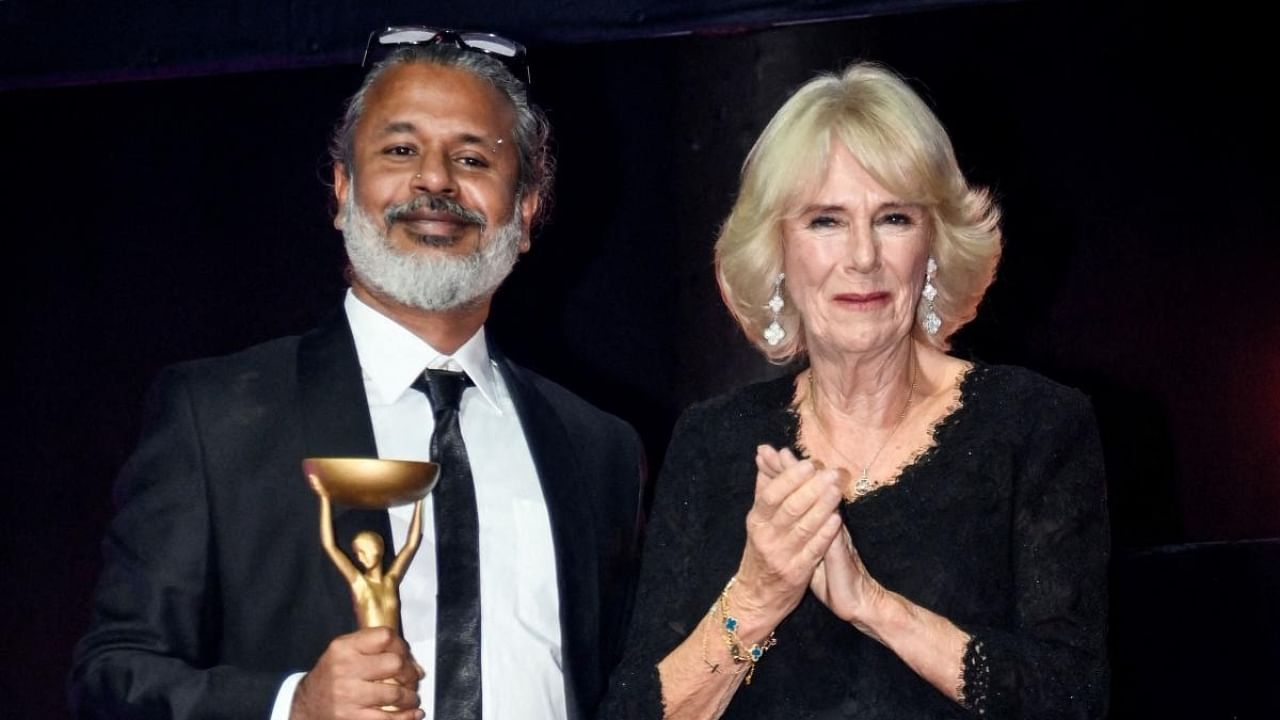
When I interviewed Sri Lankan novelist Shehan Karunatilaka in September after he was longlisted for the 2022 Booker Prize, he told me, inter alia, Sri Lanka is cursed but its storytellers are blessed.
What he meant was that despite the crises in his country and the people’s struggle, there is an abundance of material for writers and there are compelling voices across literary genres. Indeed, the writers are blessed because there’s plenty to tell and lots to learn and it could well be rewarding as in the case of Karunatilaka.
From being longlisted to getting shortlisted among the final six, he went on to win the Booker Prize, the second Sri Lankan to bag the award for his second book The Seven Moons of Maali Almeida.
It not only gets him 50,000 pounds in prize money and international recognition but also gives Sri Lankan and South Asian literature a big boost.
Moreover, the award is sure to bring some cheer to Sri Lankans who are caught in their daily struggles amid the country’s worst economic crisis since its independence in 1948.
In fact, when I asked Karunatilaka if he screamed in delight on hearing that he was longlisted for the Booker, he said he was walking his five-year-old to class while his wife sat in a petrol queue when he got the news.
Sadly, it has been an exacting few years for Sri Lankans post the civil war and like Karunatilaka many lost whatever faith they had in the country after the Easter attacks of 2019. Since then, the decline has been steady and then sudden.
As he stated in his acceptance speech: “My hope for ‘Seven Moons’ is that in the not too distant future….it is read in a Sri Lanka that has understood that these ideas of corruption, race baiting and cronyism have not worked and will never work.”
He added: “I hope it is read in a Sri Lanka that learns from its stories and that ‘Seven Moons’ will be in the fantasy section of the bookshop and will…not be mistaken for realism or political satire.”
Strong words, poignancy and optimism cannot be mistaken.
Crucially, Karunatilaka, in his speech, also referred to the recent stabbing in New York of fellow Booker Prize-winning author Salman Rushdie, saying it is something that “hangs over all of us if we are writing in South Asia, especially writing about politics or religion.”
Originally published in India with the title Chats with the Dead, Karunatilaka’s The Seven Moons of Maali Almeida is set in 1990 Sri Lanka during the country’s civil war. Part ghost story, part whodunit, part political satire, the story follows a gay war photographer and gambler, Maali Almeida, who wakes up dead in what seems like a celestial visa office. He has “seven moons” to reach out to loved ones and guide them to the stash of his hidden photographs depicting the cruelty of his country’s conflict.
For Karunatilaka, it was what he remembers as the worst time in Sri Lankan history – a civil war, a Marxist revolt, an Indian army, state counter squads; it was a time of disappearances and unidentified corpses. He thought a ghost story would be an interesting way of making sense of the trauma and the many traumas that followed.
And what a brilliant story was told within the nearly 400 pages of the book.
This year’s shortlist of Booker Prize contenders included some accomplished writers from across the world. Ultimately, Karunatilaka’s book trumped all.
As the judges chair, Neil MacGregor said: “This is a metaphysical thriller, an afterlife noir that dissolves the boundaries not just of different genres, but of life and death, body and spirit, east and west.”
“It is an entirely serious philosophical romp that takes the reader to ‘the world’s dark heart’ — the murderous horrors of civil war Sri Lanka,” MacGregor added. “And once there, the reader also discovers the tenderness and beauty, the love and loyalty, and the pursuit of an ideal that justify every human life.”
Undoubtedly, Karunatilaka is a gifted storyteller. The 47-year-old with an advertising background became a star over a decade ago with his superb cricket themed debut novel Chinaman that pulled in some top awards.
Now, with the prestigious Booker Prize under his belt, Karunatilaka is likely to be busy with his third novel and a couple of children’s books. Interestingly, as he affirmed, all his stories will be set in Sri Lanka until he finds another place “that’s as absurd and bewitching.”
More importantly, he is likely to make publishers sit up and take notice of writers in Sri Lanka who have plenty of stories to tell but always find publishing internationally a challenge.